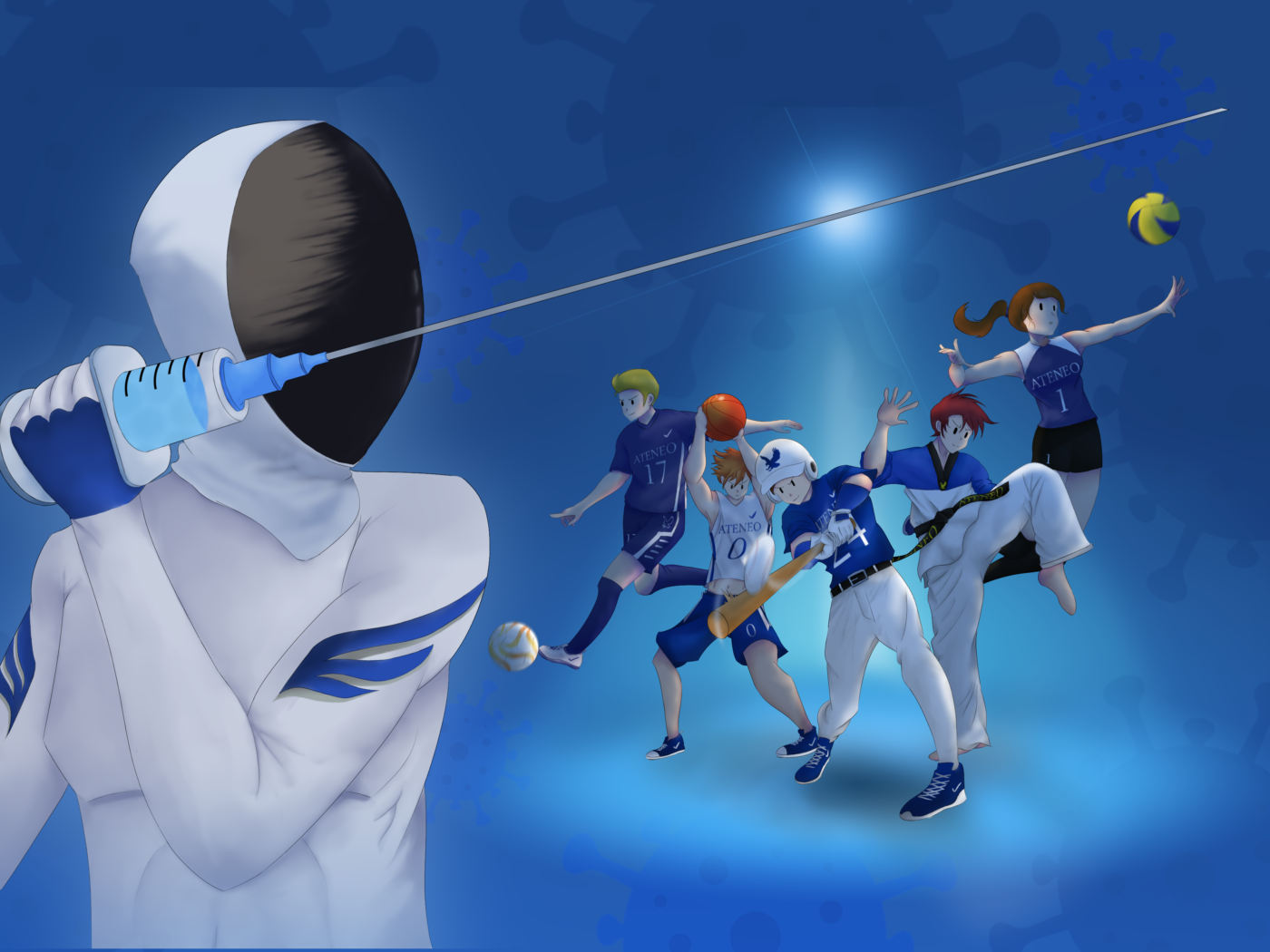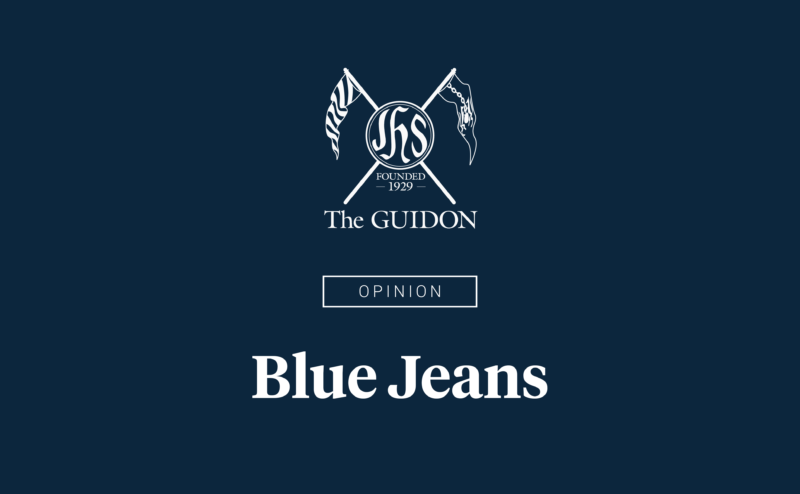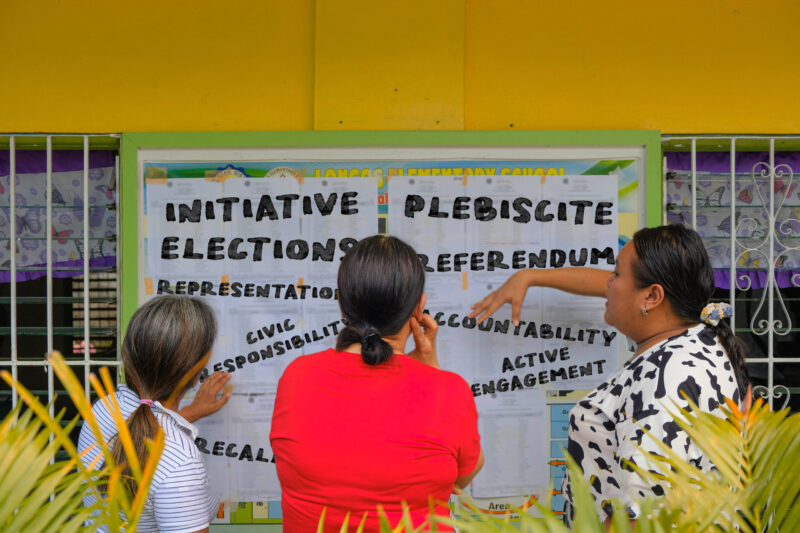WITH THE University Athletic Association of the Philippines (UAAP) still hindered by health concerns, logistical complications, and financial issues amid the COVID-19 pandemic, fans and athletes alike await the league’s appearance in the “new normal.” This return grows more likely as the nationwide vaccination program presents the UAAP with the opportunity to better protect itself from the virus.
With health and safety being primary concerns in planning the UAAP’s return for Season 84, vaccinating the league’s stakeholders against COVID-19 is a step towards the tournament’s resumption.
The game-changer
According to a Rappler Sports report, all sports-related discussions between the UAAP and concerned government agencies were postponed due to the sudden surge of COVID-19 cases from March to April. Before the deferral, the resumption of on-site training was approved by the Commission of Higher Education (CHED), yet this was denied by the Inter-Agency Task Force for the Management of Emerging Infectious Diseases (IATF-EID). Both government organizations have yet to discuss the return of face-to-face competition.
Furthermore, on-site extracurricular activities—such as sports events—remain prohibited unless permitted by the IATF-EID, as stated in a memorandum released by CHED last February 10. It is important to note that the IATF-EID conditions were made prior to the arrival of the nation’s first vaccine doses. With the recent distribution of vaccines, University Athletics Office (UAO) Director Em Fernandez divulged that achieving herd immunity favors the league’s Board of Trustees (BoT) in receiving clearance to commence the tournament and on-site training.
“It would be easier for [the UAAP BoT] to seek permission not just from CHED, but also from the university presidents [and the IATF-EID, if all participants are vaccinated]. At the end of the day, everybody wants to have a safe environment to have the tournament,” Fernandez commented.
Should the CHED and IATF-EID approve the league’s requests, Fernandez states that the UAAP BoT has targeted February 2022 for Season 84’s debut. With the vaccine now in play, the UAAP hopes that its stakeholders are immunized by December in order to have full-contact training reinstated at least two months before the tournament begins. To ensure smoother operations should face-to-face affairs resume, the UAAP BoT is already making the necessary preparations such as scheduling each sport’s events.
As for Season 84’s sports roster, the UAAP’s first option is to have all sports participate in the tournament. If this proposal is not plausible, Fernandez believes that the league’s second option should be to host Men’s basketball and the second semester sports that had their seasons curtailed in Season 82.
In terms of the tournament’s format, it is still uncertain whether the IATF-EID will require the league to implement a bubble that limits outside contact, regardless of whether the UAAP will achieve herd immunity. Although vaccinating the league may not guarantee the UAAP’s immediate return, immunizing its stakeholders makes pursuing Season 84 feasible.
Adversity amid uncertainty
Alongside the UAAP’s goal of securing a safe environment for its stakeholders are the challenges in achieving herd immunity. Given that the UAAP community is vast in number, it is uncertain if vaccines will be made available to everyone by December due to limitations in the national supply.
According to the data collated by The GUIDON’s Research staff, only 12.9% of the country’s population have received at least one dose of the vaccine as of August 11. This leaves 87.1% of Filipinos still unvaccinated. Within the National Capital Region, only the local government units of San Juan, Marikina, and Mandaluyong have given 85% of their local population their first dose of the vaccine.
Despite these statistics, Fernandez argues that having access to vaccines is not necessarily an issue for Atenean UAAP stakeholders. In a July survey conducted by Ateneo’s UAO, where 358 Atenean athletes answered the form, 136 were fully vaccinated. Additionally, 109 have gotten their first doses while 114 Atenean athletes have not been vaccinated. As for the coaches—out of 74 respondents—43 have been fully vaccinated, 12 have received their first jab, and 19 have yet to be inoculated.
While Fernandez cannot give an estimated number of how many more vaccines the league’s stakeholders require, he is optimistic that all seven other UAAP schools are doing their part to vaccinate their members. “Alam ko (I know) the other schools are also doing their [own] survey, and they’re suggesting to all their coaches and athletes if you have access to vaccines, please vaccinate,” voiced the UAO Director.
Vaccine hesitancy is another hurdle that the UAAP community faces, especially considering controversies such as the Dengvaxia vaccine and the fear of vaccine side effects. These issues serve as barriers to nationwide vaccination, thus impacting the league and its dependence on herd immunity. In the opinion of Ateneo Women’s Badminton stalwart Mika De Guzman, education on vaccines is key to relieving hesitancy. “If we don’t start thinking of ways [to educate] the marginalized sector on the importance of getting vaccinated, we will continue to face this virus for a very long time,” shared De Guzman.
Additionally, the threat of the more transmissible COVID-19 Delta variant has forced the country into stringent lockdowns due to spikes in positive cases. The prospect of future implementations of enhanced community quarantines and other lockdowns might prevent the UAAP from pushing through even if the majority of the league’s members are vaccinated.
However, De Guzman is certain that the vaccine provides substantial protection from the virus. “When you get vaccinated, you’re not just protecting yourself but you’re also helping the world to stop the spread of COVID-19,” she stated.
Piercing through the futureSince events like the UAAP are heavily dependent on herd immunity, consolidating the country’s vaccine supply and immediately inoculating the UAAP’s stakeholders helps push forward the league’s return. As vaccines are considered essential to the return of the UAAP, systems such as Ateneo’s vaccination program and national online information platforms are welcome developments towards more efficient inoculation. While the return of the UAAP is still uncertain, vaccinations remain to be a concrete way towards safeguarding the health of each Filipino moving forward.







